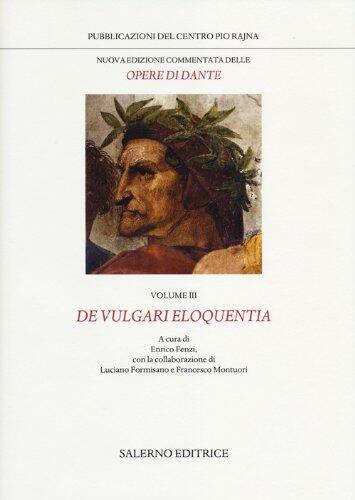
De vulgari eloquentia
Pas encore d'évaluations
Format
Relié
Pages
791
Langue
Italien
Publié
Nov 28, 2012
Éditeur
Salerno Editrice
ISBN-10
8884027691
ISBN-13
9788884027696
Description
Dante Alighieri's exploration of vernacular eloquence presents a profound investigation into the nature of language and its role in expressing human experience. Written at a time when Latin dominated literary expression, the treatise argues for the legitimacy and richness of the vernacular languages emerging across Italy. This ambitious work not only challenges prevailing linguistic norms but also seeks to elevate the status of everyday speech, suggesting that beauty and complexity exist within the language of the common people.
Throughout the chapters, Dante introduces various dialects and their unique characteristics, emphasizing the cultural significance of linguistic diversity. He meticulously categorizes regional languages and reflects on their historical evolution, providing insights into how language shapes identity and thought. By advocating for a standardized form of vernacular poetry, Dante gestures toward a future where literature resonates with a broader audience.
Collaborations from prominent scholars such as Enrico Malato and Luciano Formisano further enrich this discourse, examining conversions in style, meaning, and technique. Together, they highlight Dante's visionary role in defining the potential of vernacular language in literature, setting the stage for future generations of writers who would embrace and innovate within the realm of spoken idioms.
Throughout the chapters, Dante introduces various dialects and their unique characteristics, emphasizing the cultural significance of linguistic diversity. He meticulously categorizes regional languages and reflects on their historical evolution, providing insights into how language shapes identity and thought. By advocating for a standardized form of vernacular poetry, Dante gestures toward a future where literature resonates with a broader audience.
Collaborations from prominent scholars such as Enrico Malato and Luciano Formisano further enrich this discourse, examining conversions in style, meaning, and technique. Together, they highlight Dante's visionary role in defining the potential of vernacular language in literature, setting the stage for future generations of writers who would embrace and innovate within the realm of spoken idioms.
Avis
Aucun avis pour le moment
Soyez le premier à donner votre avis sur ce livre et partagez vos pensées
Ajouter le premier avisJournal de lecture
Aucun journal de lecture trouvé
Commencez à suivre vos progrès de lecture pour voir les journaux ici
Ajoutez votre premier journal de lectureNotes
Journal des transactions
Aucun journal de transactions trouvé
Commencez à suivre vos transactions de livres pour voir les journaux ici
Ajoutez votre premier journal de transactions